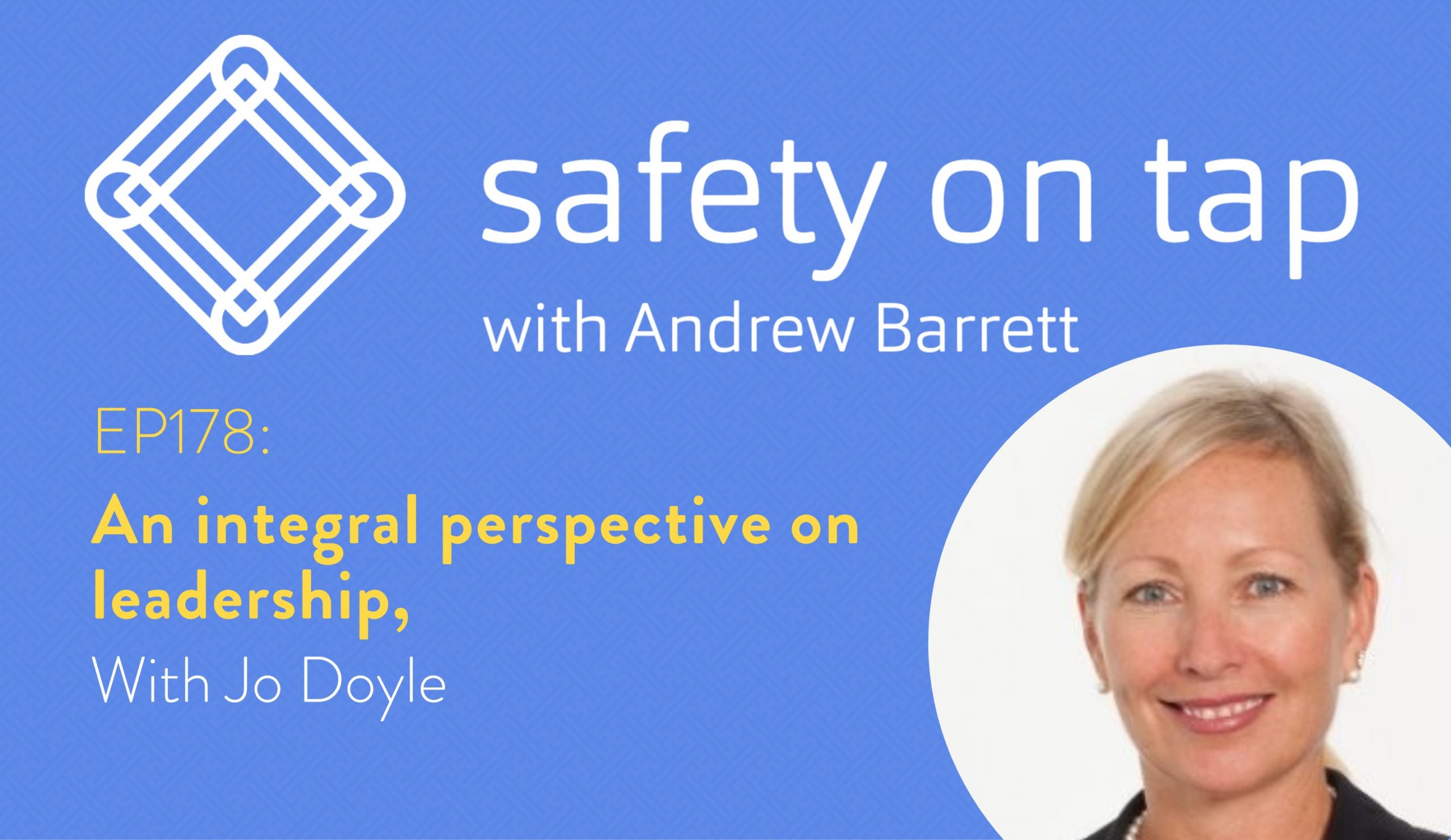We all talk about leadership and its importance to health and safety. And at the same time, we struggle to understand what it means, how each of us define it, and what to do about it. Here’s one perspective on leadership to help you through the mess.
Hey, it’s Andrew, and this is Safety on Tap.
Since you’re listening in, you must be a leader wanting to grow yourself and drastically improve health and safety along the way. Welcome to you, you’re in the right place. If this is your first time listening in, thanks for joining us and well done for trying something different to improve! And of course welcome back to all of you wonderful regular listeners.
You’ve probably heard me talk about learning teams, and might be wondering what’s that all about. Learning teams are an increasingly popular practical activity to help your organisation to learn better, in order to improve performance.
It’s not an investigation, its not a risk assessment, and its not a committee meeting – but a learning team approach can help to learn from the past, to anticipate the future, and to engage effectively with people all over your organisation or supply chain.
There’s not one way to do learning teams but some critical principles which will enable you to facilitate better learning whatever your situation.
I’ve created a few short videos which explain What is a learning team? If you’re interested visit safetyontap.com/what
My guest today is the ever-humble Jo Doyle.
Jo comes highly recommended to me, she has been on my potential guest list for years now. With many years experience in strategic organisational change and executive coaching, Covid created the impetus for Jo to gravitate back to her sweet spot and passion of being in Service of Well-being. She creates space for others to self-reflect, grow in awareness, and tap into their innate capability for healing towards freedom. Her style is compassionate, non-judgemental, direct, and appropriately challenging. Jo’s own journey reflects the knowledge that choice and personal responsibility, willingness to do things differently, and learning from experience are foundations for change.
As a psychologist Jo has found her niche as a proponent of The Richards Trauma Process. As a treatment modality for anxiety, depression and PTSD. Her lifelong quest to understand the human condition as led her to undertake a Master in Consciousness and Transformative Studies to further explore who we are as human beings. She lives a balanced, meaningful life on an off-grid bush property on the NE coast of Tasmania.
As someone who has spent an enormous amount of time understanding and developing leaders of all walks of life, across many countries, I was curious for you and I to get Jo’s take on leadership.
Here’s Jo:
It’s not possible to boil everything down to a few simple concepts, parts, or actions. I think the conversation with Jo is a great reminder that leadership certainly is something that requires our investment in to understand, to articulate and if we choose, to change. Jo was so lovely afterwards expressing to me that she wasn’t sure whether our chat was practical enough for you. Practical doesn’t mean simple. Practical doesn’t mean easy. Practical means being concerned with the actual doing or use. And there were certainly plenty of things I distilled for us to do.
With that in mind, here’s my three takeaways from that chat with Jo Doyle:
Takeaway #1: Have a model. Have a framework. Have a concept you can communicate, to help explain what you mean and the change you are seeking to make. Think about the Integral Theory framework Jo talked us through – four quadrants, on one axis is individual to collective, the other axis interior to exterior. That gives us four lenses for development. All models are wrong, but some are useful – whether its leadership or anything else that you are talking about, having a clear model helps.
Takeaway #2: The four quadrants from integral theory on those two axes give us four perspectives to take on our development – I, it, we, and its. Jo succinctly oriented us to the ‘I’ quadrant, explaining how we often think of leadership as a collective thing to be changed collectively, instead of it being an individual thing which begins with individual responsibility. Imagine your practical action is this: if you do any kind of leadership development, what would happen if the only people to go through it were the people who chose to do it? Would you have more engaged participants? Would you waste less resource? Would you also then know more about the group of people who chose not to participate?
Takeaway #3: Humans are whole people. Jo talked about Integral Theory as a holistic approach – which means that we cannot and should not try to artificially separate the worker from their non-work person – the boss is still a sister or daughter or wife, our life experiences shape and affect our work and vice-versa. Whilst it might feel daunting to be open to each and every person as a whole person, in my experience it turns out to far more human, enjoyable and productive when we do.
Thanks so much for listening. Until next time, what’s the one thing you’ll do to take positive, effective or rewarding action, to grow yourself, and drastically improve health and safety along the way? Seeya!
Here’s your FREE reflection worksheet from this episode.
And here’s your FREE download of the full transcript of this episode.
Feel free to share this with your team/colleagues!

